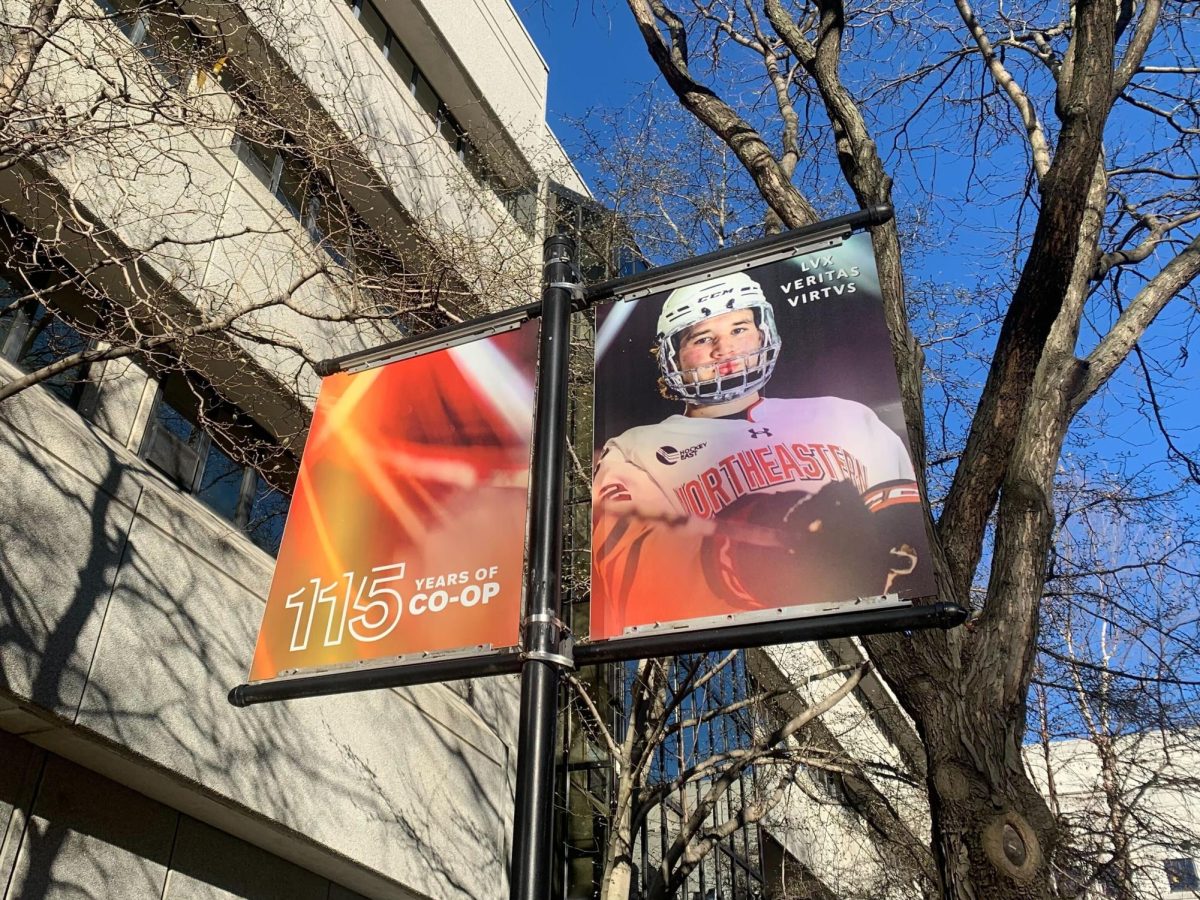Northeastern looked vastly different 115 years ago. The university, then named The Evening Institute for Young Men, was still teaching classes out of the Huntington Avenue YMCA, and it would be another 20 years before it constructed its first building, Richards Hall, in 1938.
At the time, the university was still an all-male institute and hadn’t yet gained university status. But one quintessential part of the Northeastern experience today can be traced all the way back to 1909: the co-op program.
The 2024-25 academic year marks 115 years of co-op at Northeastern. The experiential learning program, which began as a partnership between the university and four New England-based companies, now hosts a global network of more than 3,800 employers across all seven continents. Co-op is a cornerstone of the Northeastern experience; as of 2024, 95% of students complete at least one co-op, according to Northeastern’s website, and the university came first in the 2024 U.S. News ranking for co-ops and internships.
When the program first began in the College of Engineering in 1909, it was the second co-operative education program in the United States, taking inspiration from the first ever program at the University of Cincinnati. While the program aimed to provide students with hands-on professional experience, it also served as a way for students to pay tuition by “earning while learning.” Until the late 1920s, students would alternate between one week in classes and one week working for all four years of their undergraduate degree. In the 1930s, the program’s success led to its expansion into other colleges.
“I applied to Northeastern because of the co-op program,” said Jerry Cronin, a Northeastern Class of 1966 alumnus. “I figured that would pay the expense of tuition.” One hundred and fifteen years later, many continue to cite the co-op program as the primary reason they chose to attend Northeastern.

In the 1950s, the co-op philosophy shifted toward the modern version of the program. The department was renamed from the Department of Cooperative Work to the Department of Cooperative Education, and its first dean, Roy L. Wooldridge, was appointed in 1958. The university then changed the slogan from “earning while learning” to “learning while earning.” The university, officially known as Northeastern College as of 1916, placed emphasis on the educational value of co-op experiences, defining the program as more than just a way for students to finance their education.
Cronin said the program did become more than just a way to pay tuition fees for him. He completed a co-op at The Boston Globe and returned to work there after graduation, eventually becoming senior manager of advertising. Cronin said his co-op supervisor was “a wonderful boss. … I’m a great believer in both the co-op program and the mentor system.”
By the mid-1970s, co-op had become an international operation. As the international student population at the university increased, Northeastern invested in study abroad and global co-op opportunities. As a result, the university established the Office of International Cooperative Education at the end of the 1970s. Over the course of the 1980s, the number of students working global co-ops doubled. Northeastern has since provided experiential learning opportunities in 149 countries.
Rowan Frew, a third-year business administration and economics combined major, completed a global co-op at Piraeus Bank in Athens, Greece. “My co-op experience was honestly the time of my life,” Frew said. “My employers always helped me with aspects of the business and culture I didn’t understand and actually ended up giving me more freedom and responsibility than I’d ever get at my age at a U.S. bank.”

Co-op aims to give Northeastern students a head start on the career ladder. This year, the university reported that 93% of its graduates are either employed or enrolled in further education nine months after graduation, with 58% of students receiving a job offer from one of their previous co-op employers.
Having tested out career paths before college, the goal is for Northeastern graduates to be more intentional with the jobs they apply to post-grad.
“Co-op has given me the opportunity to learn what I want in my future workplace before graduating college,” said David Rooney, a third-year industrial engineering major who did his first co-op at MAAT Energy. “I’ve also been able to fully immerse myself in the sustainable energy field and learn the ins and outs of creating a product.”
For some, however, co-op doesn’t guarantee an easy entry into the job market. And for certain majors, the process of obtaining one can be competitive, students said.
“It’s been a pretty rough process,”said Nicholas Wong, a third-year computer science major. “The field is very oversaturated and it’s stressful trying to basically fight for a co-op.”
Students’ anxiety grew when Northeastern implemented a cap on co-op applications in fall 2024, which prevented students from applying to more than 100 positions through the NUWorks website.
Even with co-op experience, the search for a post-grad job can be a long, grueling process. This year, the analytics firm Burning Glass Institute found that almost half of college graduates are in jobs that either don’t require a bachelor’s degree or do not utilize the skills and knowledge they gained during their education. This phenomenon, known as underemployment, where graduates are working jobs for which they are overqualified, has led to questions about the value of a college education.
For this reason, some students plan ahead and co-op at companies where they may get a return offer.
“I went into my second search looking for someone that would take me full time,” said Taylor Lark, a Northeastern Class of 2024 graduate who is now working as a strategy and operations associate at cybersecurity company Snyk, where she completed her second co-op. “It was a big factor in deciding where I wanted to work.”
Lark was successful in securing a return offer. Lark said receiving that offer at the beginning of her fourth year alleviated a lot of stress.
“It was definitely a huge relief,” Lark said. “Co-op offered me a lot of security and saved me a lot of stress.”
Since 1909, co-ops have offered students the chance to gain practical skills and enter the workforce before graduating college, and the program continues to be a key part of the Northeastern experience.
“Coming out of [my co-op] I have a different view of my major that I wouldn’t have gotten from any classroom. … I think it’ll help me a lot as I begin my career,” Frew said.












